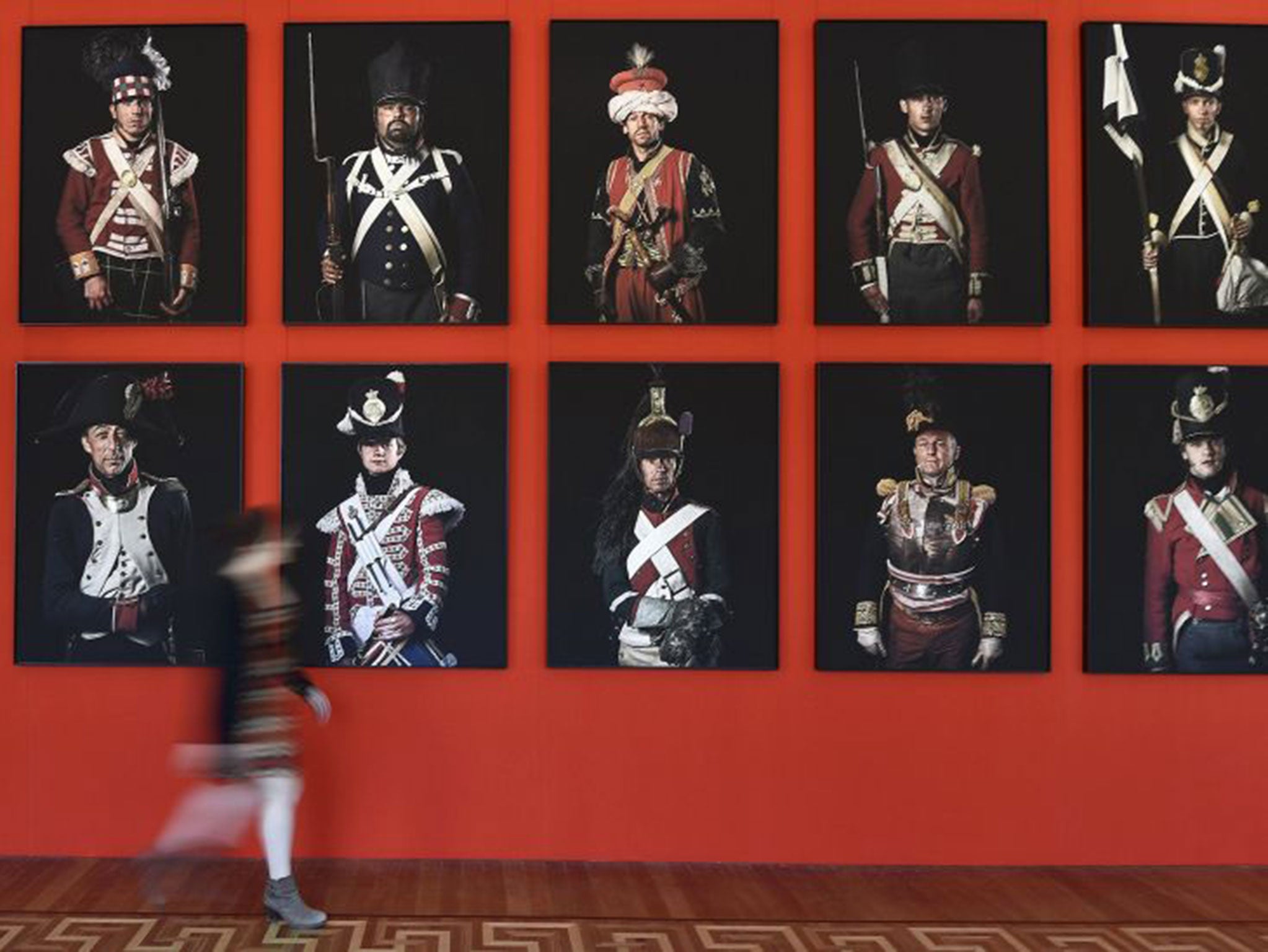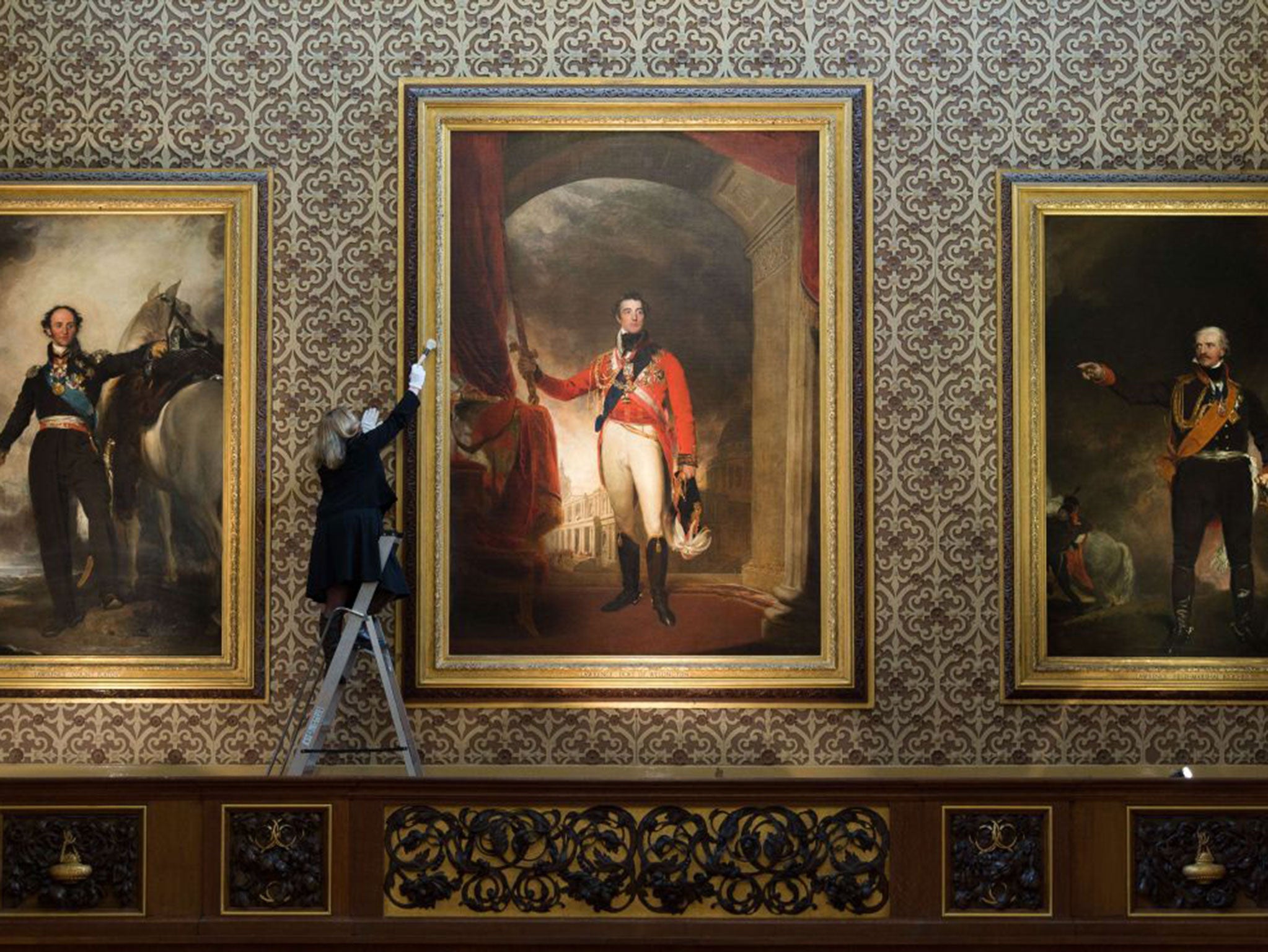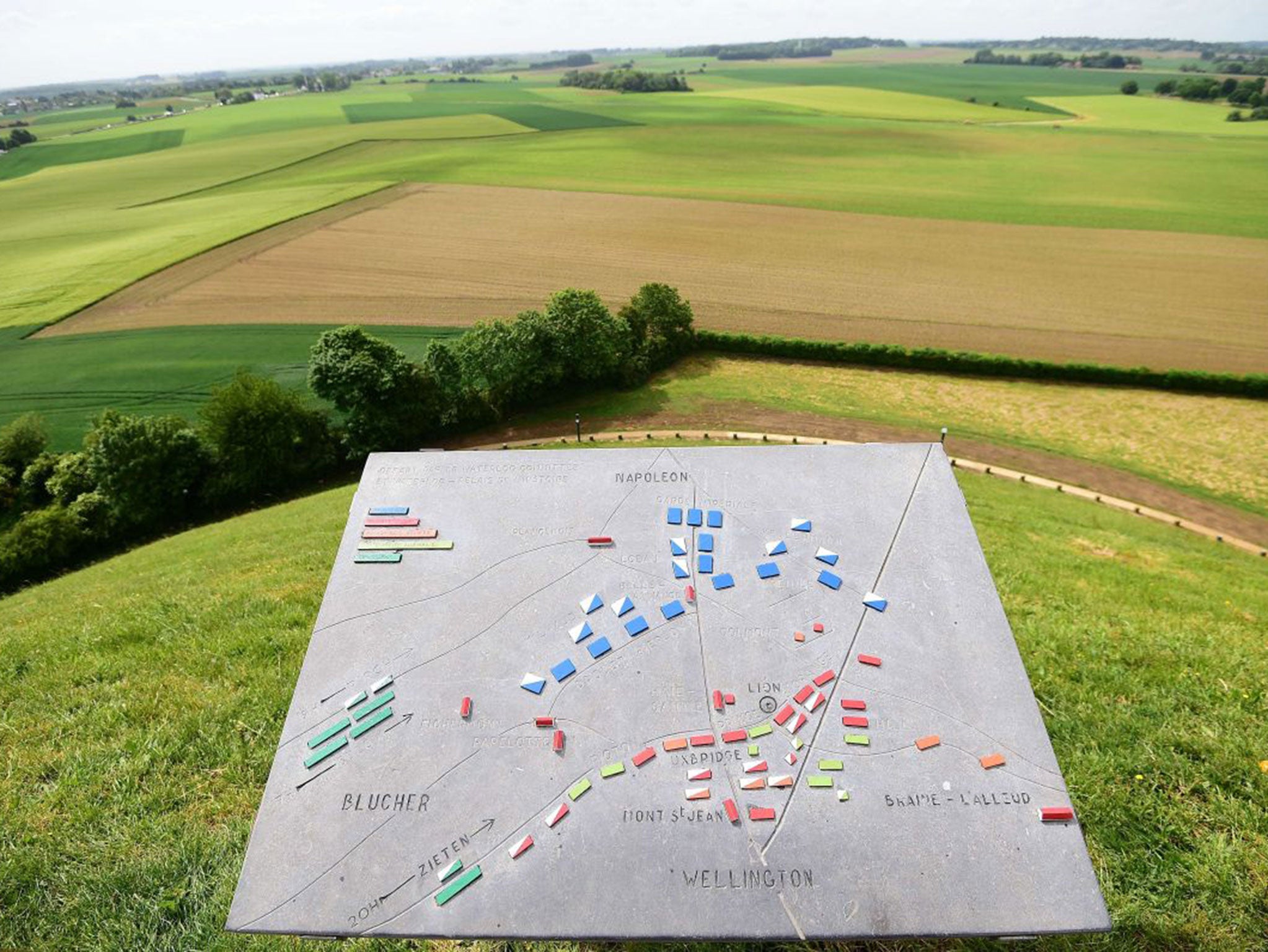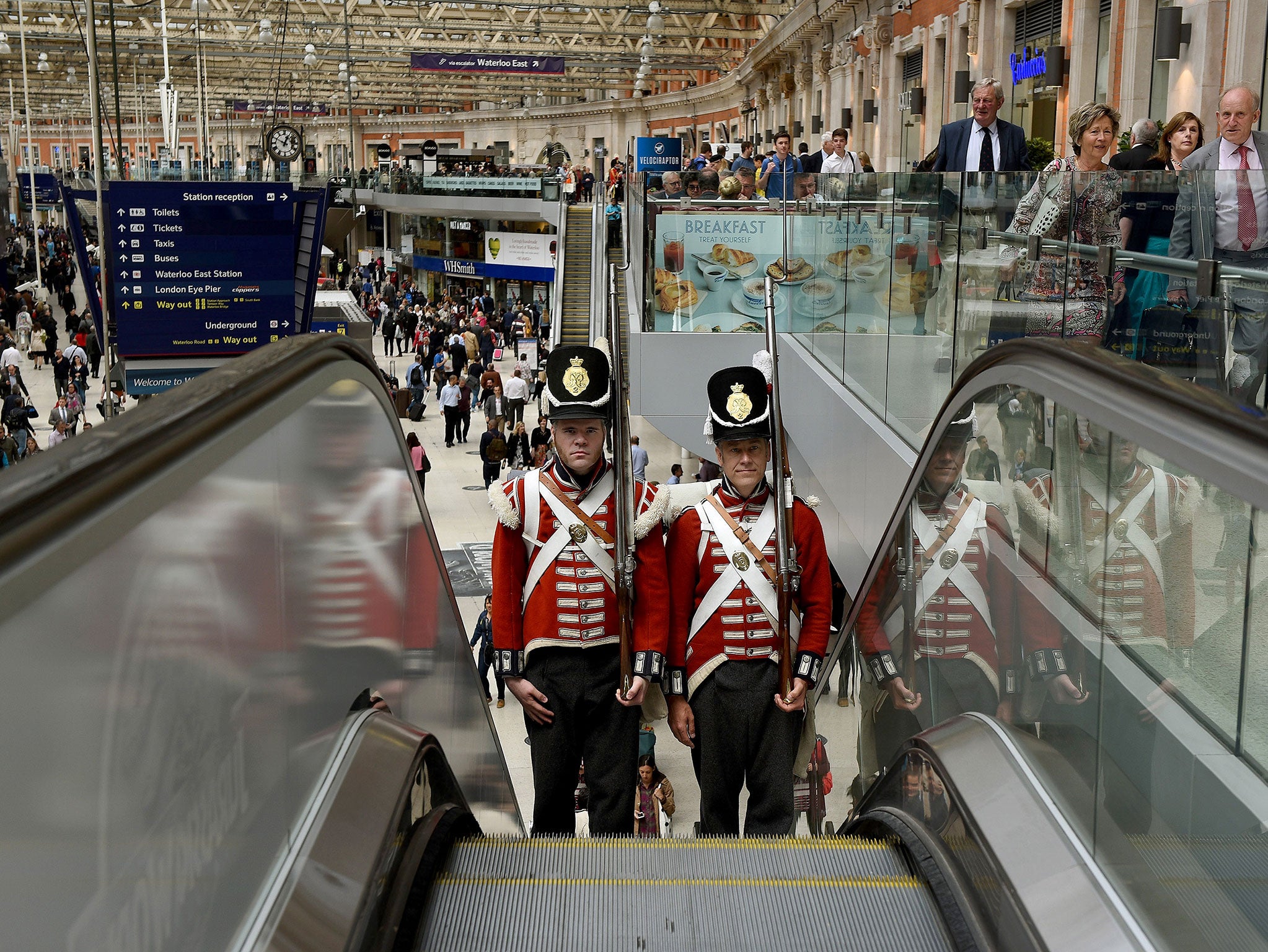Waterloo 200-year anniversary: The myths of the battle that changed history. Or maybe not...
Ahead of the 200th anniversary next week, John Lichfield dissects the myths that continue to surround the significance of Wellington’s defeat of Napoleon in a field outside Brussels

Your support helps us to tell the story
From reproductive rights to climate change to Big Tech, The Independent is on the ground when the story is developing. Whether it's investigating the financials of Elon Musk's pro-Trump PAC or producing our latest documentary, 'The A Word', which shines a light on the American women fighting for reproductive rights, we know how important it is to parse out the facts from the messaging.
At such a critical moment in US history, we need reporters on the ground. Your donation allows us to keep sending journalists to speak to both sides of the story.
The Independent is trusted by Americans across the entire political spectrum. And unlike many other quality news outlets, we choose not to lock Americans out of our reporting and analysis with paywalls. We believe quality journalism should be available to everyone, paid for by those who can afford it.
Your support makes all the difference.Two centuries ago next week, a rag-tag European army led by an Irish general defeated the French near a village south of Brussels. Next Thursday, Friday and Saturday 5,000 people will dress up in old uniforms to stage the most ambitious ever re-enactment of “The Battle That Changed History”.
There has been great excitement about the bicentenary of the Battle of Waterloo in Britain; much less so in France. The old enemies agree, nonetheless, in perpetuating myths about Waterloo (starting with the dubious proposition that the battle “changed history”).
Both countries persist in believing that Waterloo was a British – or even an “English” – victory. Both say that the battle brought to an end 150 years of French supremacy. Both believe that Waterloo made Britain, briefly, the western world’s “Top Nation”.
Waterloo conveniently marks the end of many things. It was the direct cause – properly speaking – of very few.
Myth 1. The British victory
The Duke of Wellington is alleged to have said that the battle was won on “the playing fields of Eton”. No, it was not – unless that school took a lot of foreign students. Many of the “British” soldiers at next week’s three-day “Waterloo 2” – as re-made for TV – will be Dutch or Belgians or Americans. Many of the “French” soldiers will be Scandinavian, Swiss, Russian or British.

In the case of the “British” army, this multi-national force of enthusiasts will be historically correct. On 18 June 1815, Wellington, born in Dublin of Irish ancestry, led a European army, long before such ideas enraged the readers of the Daily Express or Daily Mail.
More than half of Wellington’s own force consisted of Hannoverians, Saxons, Dutch and Belgians. About a quarter of the 120,000 soldiers who defeated Napoleon at Waterloo were “British” – and maybe one in eight were English.
Of the 32 infantry regiments in Wellington’s army of about 70,000, only 18 were British, of which seven were from Scotland. Modern historians estimate that one in three of the soldiers in the “English” regiments were from Ireland. Of the 12 cavalry brigades, seven were British and many of their regiments were German. Half the 29 batteries of guns were Hannoverian, Dutch or Belgian.
None of these numbers include the 53,000 Prussians who turned up eventually and swung the battle Wellington’s way, just when the French were pushing for a late victory.
Colin Brown, author of The Scum of the Earth, one of the most interesting of the crop of bicentenary books about Waterloo, writes: “Victorian jingoism fuelled one of the most persistent myths about Waterloo: that it was a British – or even more inaccurately, an English victory.” This re-imagined battle has helped to create, he suggests, the self-image of “plucky little Albion” which shapes British attitudes towards the EU to this day.
Myth 2. Waterloo changed history
Waterloo genuinely was significant. It marked the end of 750 years of intermittent Anglo-French conflict. The two nations have not fought each other since (give or take a few skirmishes in Africa and the Middle East). The 1,000-year war continues but only in French-bashing tabloid headlines, or in French-teasing books by Stephen Clarke.
Waterloo roughly marks the point when French domination of the western world ended and a century or so of British supremacy began. Hence, in part, France’s unwillingness to send a senior representative to next week’s festivities.
It should be remembered, however, that in 2005 France refused to mark the bicentenary of the battle of Austerlitz, Napoleon’s greatest victory. The French are still unable to decide whether Napoleon, though he might have been a Great Man, was, fundamentally, a Good Thing.

Did the Emperor’s defeat at Waterloo destroy the French supremacy which began in the mid-1600’s? Not really. Until the early 19th century, France was the wealthiest and most populous country in the western world (28 million people compared to 18 million in Britain in 1800). In the 18th century, it had provided the international language, the international dress standards, the international culture and most of the new, abstract ideas.
France was the United States of the day: the global reference point, arrogant, aggressive, oblivious. During that time, France lost battles, and even wars, to the British and others, but its supremacy continued. Arguably, Trafalgar, fought at the zenith of Napoleon’s powers in 1805, was more significant than Waterloo. If the British fleet had lost that battle, there would have been little to prevent a French invasion of England and a prolonged domination of Europe.
By 1815, this French ascendency was crumbling. The loss at Waterloo was a symptom of France’s fragility after a destructive revolution and 23 years of bloody wars. If Napoleon had won, he would probably have lost the next battle. Russian and Austrian armies were queuing to fight him. Equally, by 1815, British economic strength was becoming irresistible. Between 1780 and 1820, industrial output doubled. Britain did not send many of its own soldiers to fight Napoleon (they were fighting the Americans) but its wealth subsidised, or bought, the other “allied” armies.
The French economy meanwhile was losing ground. The historian Simon Schama in his book on the French revolution, Citizens, points out that the Ancien Régime was not so “ancient”. Before 1789, the French monarchy had started to follow Britain down the route to factory-driven economic power. That progress was frozen for nearly 30 years by the Revolution which, according to stubborn French historians, invented Modern Times.

Just as importantly, by 1815 the number of people in Britain and the future Germany was catching up with France. The French started practising contraception, mostly through coitus interruptus, 20 years or so before the British and Germans did. At the same time, the survival rate of infants in all European countries improved dramatically.
There was a critical period of two decades at the end of the 18th century when the French population grew slowly but Britain’s surged. This relative baby bust was enough to put the trajectory of French demography onto a lower course than Britain or Germany (or later the US). If France had grown from 1780 onwards at the same rate as Germany and Britain, it would have a population of more than 100 million today.
After 1815, France would never again be top nation, because it was no longer the biggest and wealthiest country and could no longer muster the most money and the biggest armies. That was nothing to do with Waterloo.
Britain did briefly become Top Nation – but it was never a military power. Its strengths were those of a new industrial and global trading world and a booming population. That was nothing to do with Waterloo.
If Wellington had lost, Britain would have been shaken but the population would have continued to grow. The Lancashire cotton mills and Birmingham metal foundries would have continued to build the world’s first industrial (for good or ill) society.
If Wellington had lost, the British fleet would have still stood between Napoleon and an invasion of England.
The “real Waterloo”, the battle which established British economic and political dominance in the 19th century, was won in Lancashire’s cotton mills.
For France, the “real Waterloo”, the population and economic battle, was lost on the barricades and – irony of ironies – in the marital bed.
Join our commenting forum
Join thought-provoking conversations, follow other Independent readers and see their replies
Comments